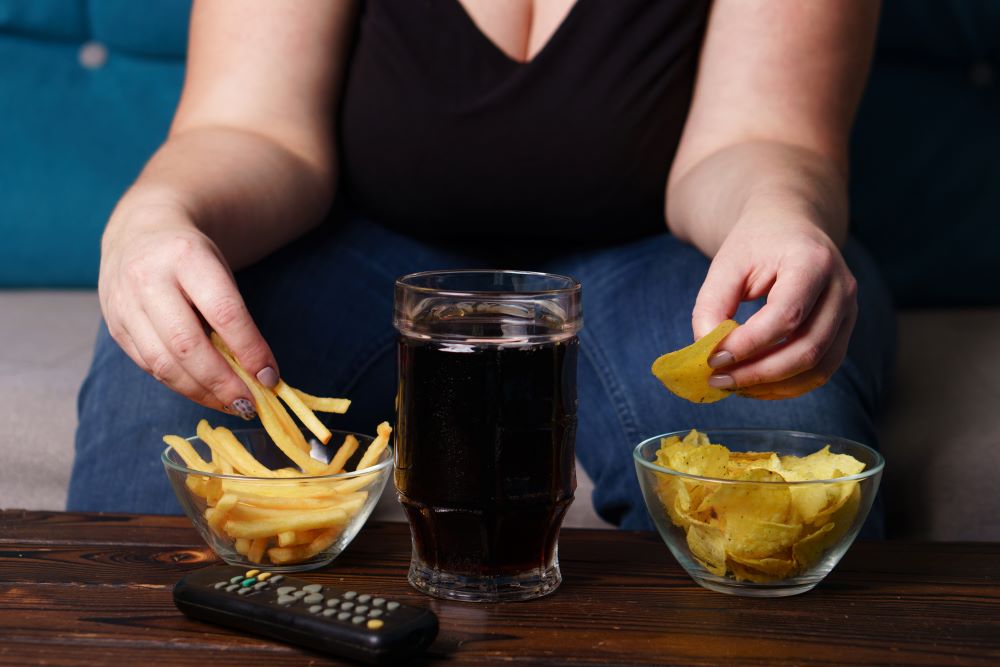
Trauma looks different for everyone. Each person comes to The Guest House with their own experiences and interpretation of those experiences. This is why it is vital to treat each person individually. If you have dealt with a single event or a series of events that have had a negative impact on your life and have changed how you view yourself and your place in the world, please know that help is out there.
You are not your trauma. You are not what has happened to you as a result of your trauma. You can heal from what has happened to you. We can help give you a sense of freedom, peace, and hope. You don’t have to be defined as the person who has gone through trauma and has developed an eating disorder. You are you, a strong person who deserves help and the chance to heal.
The Individual Nature of Trauma
The Guest House knows that everyone’s trauma is different. Even two people who have experienced the exact same event will have different reactions to the trauma they have faced. The impact of trauma can vary widely from person to person. This is why we offer individualized programs that can help you heal from these soul wounds. Working through trauma can be intense, but it is rewarding to feel all that you have been avoiding and walk through it to the other side with a new appreciation of who you are.
We understand that trauma can be isolating and that you may develop certain responses to your trauma. Many people that have gone through trauma have developed mental health challenges. Eating disorders are also common in people who have experienced trauma. Whatever your situation is, please know that you are not alone. The Guest House is here to help.
Eating Disorders After Trauma
In a study done by researchers for the National Institute of Health, it was found that many people who have dealt with trauma have developed an eating disorder. One thing that stood out in the study was the greater impulsivity associated with both trauma responses and eating disorders. Furthermore, “some specific eating disorders behaviors associated with impulsivity, could be mechanisms to avoid awareness of the trauma.”
Wanting to avoid the intense thoughts and feelings that stem from trauma is normal, which is why many people engage in self-defeating behaviors after experiencing traumatic events. Another notable reason eating disorders may come about after trauma is the person’s want or need to have a sense of control over their situation.
Thus, it is not uncommon that we see those who have dealt with trauma develop a need for control in other areas of their life in order to regain a sense of control. Oftentimes, food is a generally easy thing for the person to control. Thoughts about eating habits and food soon turn obsessive, as someone grasps for a sense of control over their situation.
Furthermore, there is data to suggest that changes in the brain can contribute to someone developing eating disorders after experiencing traumatic events. For example, “hyperactivity in the amygdala plays a critical role in abnormal fear conditioning and is also associated with emotion dysregulation.”
There have been studies that prove that there is atypical activity in the amygdala of those with eating disorders. How these people process “negative words associated with body image” in those with eating disorders is different than in those without eating disorders. Thus, the more trauma that someone experiences, say these researchers, the more vulnerable they will be to mental illness and eating disorders.
Find Inner Strength
One of the first steps to finding the strength to get help is to take a leap of faith. Stepping outside of your comfort zone can be extremely difficult and scary. It’s also worth it. If you want to build up the courage to ask for help, start by assessing what you can and cannot control. Focus on what you can control that will help you get closer to help. Remember that you do not have to prove yourself to anyone.
You are worthy of getting help no matter what. Finding that inner strength to reach out for support is crucial. It takes vulnerability to ask for help. Don’t let it scare you away. The Guest House is here to help you. Don’t be ashamed of the trauma you have experienced or the behaviors you have as a result of that trauma. We want to help you.
How Can The Guest House Help?
If you are struggling with an eating disorder as the result of trauma, The Guest House is here to help. We offer treatment of self-defeating habits and behaviors that can help you understand the underlying causes of your actions. We can help you replace these habits with healthier ones. We also offer dual diagnosis programs if you are struggling with a co-occurring substance use disorder. Wherever you are, reach out today.
Call The Guest House today for more information about the programs we offer. We offer comprehensive and effective treatment for whatever you or your loved one is going through. We want to help you find a program that works for you and your situation. You deserve the space to recover from your trauma and eating disorder. We can be that space for you. Call us now at (855) 372-1079. We can’t wait to speak with you and help you get started today.